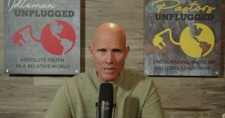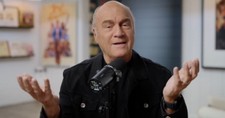
Trending Articles
Recent News
Renowned Televangelist Jimmy Swaggart Dies after Heart Attack Chris Pratt Lists Jesus among His ‘Things I Can’t Live Without’ Community Honors Fallen Firefighters Lost in Idaho Ambush Jerry Jenkins Reveals the Advice He Gave Son Dallas Jenkins as ‘The Chosen’ Took Off Lifetime Enters Christian Market with Summer Films on Faith, Strength, and Redemption Anne Wilson Talks Morgan Wallen Tour and Unannounced Album ‘The Chosen’ Cast Weeps During Crucifixion Scene in Emotional Behind-the-Scenes Video Americans Favor Chaplains in Schools but Split on Vouchers and Vaccine Exemptions Producers of ‘House of David’ Set to Launch Bible-Based Streaming Service on Prime Video
Trending Articles
Recent News
Renowned Televangelist Jimmy Swaggart Dies after Heart Attack Chris Pratt Lists Jesus among His ‘Things I Can’t Live Without’ Community Honors Fallen Firefighters Lost in Idaho Ambush Jerry Jenkins Reveals the Advice He Gave Son Dallas Jenkins as ‘The Chosen’ Took Off Lifetime Enters Christian Market with Summer Films on Faith, Strength, and Redemption Anne Wilson Talks Morgan Wallen Tour and Unannounced Album ‘The Chosen’ Cast Weeps During Crucifixion Scene in Emotional Behind-the-Scenes Video Americans Favor Chaplains in Schools but Split on Vouchers and Vaccine Exemptions
Positive Stories
Celebrity
Video
Opinion
Church
Entertainment
Sports
Movies
Politics
Israel
Christian News Headlines - Breaking and Trending Religion News
Crosswalk Headlines - Christian news brought to you by a group of Christian writers and editors who are dedicated to creating a well-rounded look at what’s happening across the globe from a Christian worldview. Our vision is to inform and inspire productive discussion about the current events and online trends that shape our lives, our churches and our world.Crosswalk Headlines includes blog posts about current events and Christian media, breaking news, feature articles, and guest commentaries, many written by respected Christian thinkers.































































